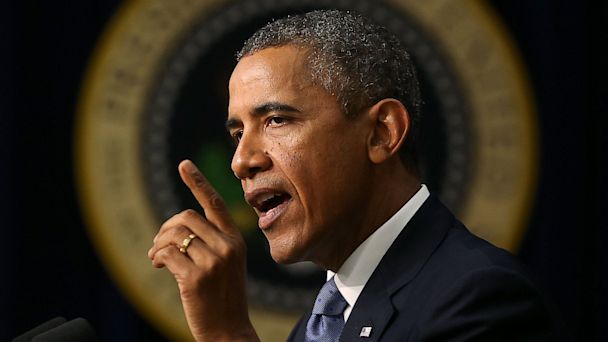White House Suggests Obama Could Meet with Iran's New President

(Credit: Mark Wilson/Getty Images)
There's nothing on the official schedule, but the White House is sending signals that President Obama is willing to meet with Iran's new president and that the meeting could happen next week when the two leaders will be in New York for the United Nations General Assembly.
Any encounter between President Obama and newly elected Iranian President Hassan Rouhani would be historic. No American president has met with an Iranian head of state since Jimmy Carter met with Shah Mohammad Reza Pahlavi in Tehran on New Year's Eve in 1977. The U.S. cut off diplomatic relations with Iran in 1980 after the seizure of the U.S. embassy in Tehran.
Asked directly if there would be a meeting in New York, White House Press Secretary Jay Carney said Thursday there was no meeting scheduled, but added, "I would just say that in general, it's possible, but it has always been possible. The extended hand has been there from the moment the president was sworn into office."
Later, Secretary of State John Kerry deflected questions about a possible Obama/Rouhani meeting back to the White House.
"I think Rouhani's comments have been very positive, but everything needs to be put to the test," Kerry said when asked if there would be a meeting. "We'll see where we go. And at the right moment, I think the White House and the State Department will make clear where we're headed."
Since he was sworn in on Aug. 4, Rouhani has made it clear that he wants to improve relations with the United States and the West. In addition to conciliatory words, he has taken some concrete steps to show he's different from his hard-line predecessor, including releasing 11 prominent political prisoners on Wednesday. He also announced that he would be bringing Iran's only Jewish lawmaker to New York as part of his official delegation.
"I would say that we obviously notice a significant change in language and tone from the new Iranian government when compared to its predecessor," Carney said Thursday. "It's rather dramatic. But it's important when we're talking about this incredibly serious matter of a nuclear weapons program that we not just take Iran's words for it, that we - that we back it up and if it's - if it's real."
President Obama, in an interview with George Stephanopoulos last week, said he had exchanged letters with Rouhani and in an interview Tuesday with Telemundo, the president suggested he is taking Rouhani's overtures seriously.
"There are indications that Rouhani, the new president, is somebody who is looking to open dialogue with the West and with the United States in a way that we haven't seen in the past," Obama said. "And so we should test it."
Even Iran's hard-line supreme leader, Ayatollah Khamenei, this week seemed to signal a possible new flexibility on the issue of Iran's nuclear program.
"I agree with what I years ago called heroic flexibility, because this is sometimes a very good and necessary move but with sticking to a basic condition," Khamenei said, according to the Iranian news agency ISNA. "Sometimes a wrestler shows flexibility for technical reasons but he doesn't forget who his opponent is and what his real goal is."